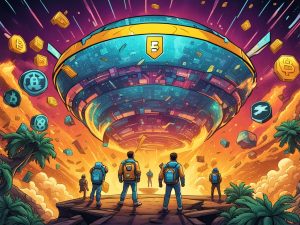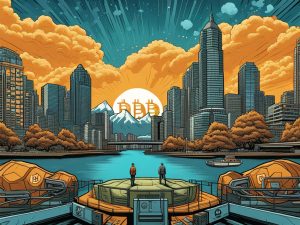Solana Labs Co-Founder Raj Gokal Discusses Web3, Scalability, and Tokenization
Raj Gokal, Co-Founder of Solana Labs, shares insights on Web3, scalability, and tokenization in a recent interview with Cointelegraph. Gokal, with a background in venture capital and health tech, made the transition to the crypto industry after meeting Solana co-founder Anatoly Yakovenko. He has been actively involved in the crypto space for the past five years.
Exploring Real-World Applications of Web3
Gokal highlights the significance of decentralized physical infrastructure networks (DEPIN) as a practical use case for Web3. He mentions projects like Helium, which established a decentralized 5G network, and Hivemapper, which utilized a distributed global workforce to remap roadways. These examples demonstrate how blockchain technology can enable innovative, cost-effective, and scalable solutions.
Addressing Scalability Challenges in Web3
When discussing scalability, Gokal emphasizes the advantages of parallelized transaction processing and validation. Solana has optimized its blockchain for speed with 400-millisecond block times and near-instant confirmations. He also emphasizes the importance of low transaction costs, compatibility, and decentralization for the long-term reliability of blockchain networks.
Solana’s Venture into Mobile and Payments
Solana has expanded into the mobile and payments sector with Solana Pay and the Saga phone. Gokal predicts that these initiatives will influence tech giants like Apple and Google to adopt more user-centric frameworks. Solana Pay aims to enable QR code-based payment features across different platforms, while the Saga phone provides developers with a flexible environment for unrestricted innovation.
Tokenization of Real-World Assets
Gokal recognizes the untapped potential in tokenizing real-world assets, particularly in the real estate sector. He mentions pioneering projects like Parcl and Homebase. However, Gokal emphasizes the need to create valuable platforms and effectively communicate their benefits to users in order to achieve widespread adoption.
Mitigating Risks in Web3
Gokal stresses the importance of reliable infrastructure to address potential outages or technical difficulties. Networks like Solana have made significant progress in enhancing reliability and minimizing issues, which is crucial for institutional adoption of Web3 technologies.
Achieving Product-Market Fit in Web3
Gokal identifies two stages of product-market fit in layer-1 protocols and the broader Web3 ecosystem. The first stage involves founders and developers securing funding to launch products. The second stage focuses on end-users deriving value from actively contributing to networks instead of solely holding assets.
Hot Take:
Web3 technologies have the potential to revolutionize various industries by enabling decentralized solutions, improving scalability, and enabling the tokenization of real-world assets. However, widespread adoption requires reliable infrastructure, effective communication of benefits, and a focus on creating value for end-users. As the crypto industry continues to evolve, it is crucial to address scalability challenges, enhance user-centric frameworks, and mitigate risks to ensure the longevity and reliability of blockchain networks.





 By
By
 By
By

 By
By
 By
By
 By
By